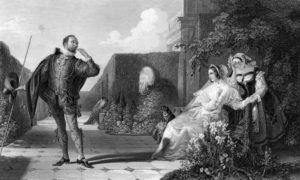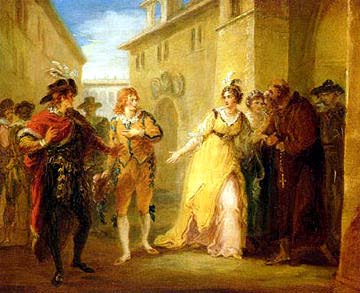 Whenever we discuss Shakespeare’s best or greatest play, some folks will make the case for As You Like It. Just yesterday on Facebook, in response to yesterday’s “The One Play” thread, one reader suggested that it is “at least as good as Hamlet.”
Whenever we discuss Shakespeare’s best or greatest play, some folks will make the case for As You Like It. Just yesterday on Facebook, in response to yesterday’s “The One Play” thread, one reader suggested that it is “at least as good as Hamlet.”
I don’t get it.
I don’t think it’s a bad play, necessarily. But that’s not saying much, I’m not sure I’d say that any of them are bad. But there are some that, if I never saw again, I think I’d probably be ok. I’m not a Love’s Labour’s Lost fan, or All’s Well That Ends Well or Two Gentlemen of Verona. There are other potential candidates, like Merry Wives of Windsor, that I’ve simply never seen live.
But other than general agreement that Rosalind is one of Shakespeare’s strongest female leads? As You Like It is right in that “It’s fine, I guess” category for me. There’s no real conflict or drama, the plot is ridiculously convoluted, the ending entirely unbelievable. The only real laugh out loud moments for me come during the exchanges between Jaques and Orlando.
Give me Twelfth Night any day if you want a strong female lead dressed up like a boy. That one’s not afraid to play with some dark edges, like what they do to poor Malvolio. His ending certainly isn’t happy. Does anybody know WTF we’re supposed to take from a character whose last line is, “I’ll be revenged on the whole pack of you”? That’s the kind of thing somebody says before coming back with an automatic weapon.
So let’s have the alternate argument? We’ll call it the Battle for Cross-Dressing Shakespeare. I suppose we can go ahead and throw in Portia from if you really want to go down that path, but I don’t really think of her as the “female lead” in the same way as a Rosalind or Viola. But, your call.



